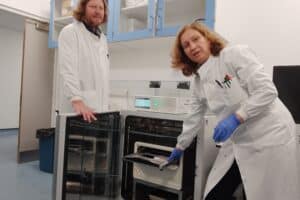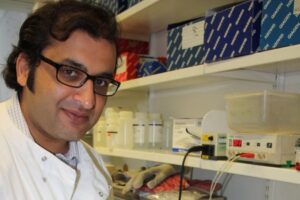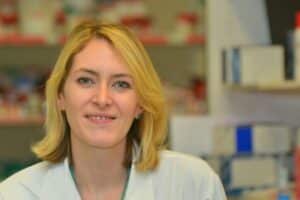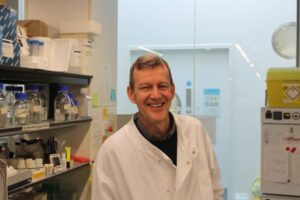Research
Supporting Acute Myeloid Leukaemia research
We’re funding a senior researcher to lead a new childhood leukaemia research team at the Paul O’Gorman Leukaemia Research Centre in Glasgow. The team will research the causes, mechanisms and treatment of childhood leukaemia, particularly looking at acute myeloid leukaemia (AML).
Our funding is providing vital support for a new team looking at childhood leukaemia, giving them the resources they need to help find better treatments for childhood AML.
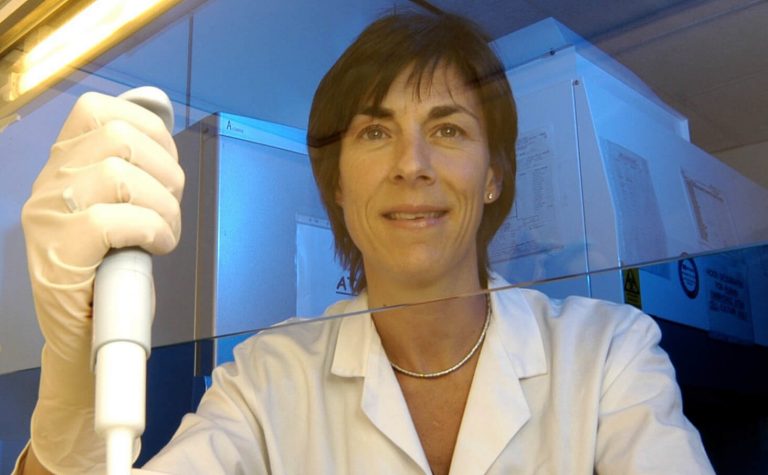
Project Details
- Senior lecturer in translational paediatric haemopoiesis
- Lead Researcher
- Professor Tessa Holyoake
- Research Centre
- University of Glasgow
- City & Institution Postcode
- Glasgow G12 0ZD
- Start Date
- 1 June 2012
- Project Duration
- 72 months
- Grant Amount
- £323,603
Overview
We helped to fund the cost of building and equipping the new Paul O’Gorman Leukaemia Research Centre in Glasgow, which opened in 2008. It’s part of Glasgow’s Institute of Cancer Sciences (ICS), providing a highly interactive research environment where scientists and doctors work with the Beatson Institute of Cancer Research, the Royal Hospital for Sick Children and the Beatson West of Scotland Cancer Centre. Now we’ve worked with Professor Tessa Holyoake, Director of the Paul O’Gorman Leukaemia Research Centre, to fund a new senior research post. The team will research the causes, mechanisms and treatment of childhood leukaemia, to help doctors improve how they treat children in the future. They’ll look mainly at acute myeloid leukaemia (AML). AML accounts for only around 15 per cent of cases of childhood leukaemia, but we know less about it, so aren’t yet able to treat children with AML as effectively as we can treat those with acute lymphoblastic leukaemia (ALL). So there is an urgent need for better treatments.
What difference will this project make?
Because AML is much rarer than ALL, scientists can’t do the same large-scale studies of the disease in children. So they’ve had to use data and research results from adults and apply them to children. But we don’t really know whether the disease is the same in children as it is in adults. At the Centre, the research team is focussed on understanding the similarities and differences between adult and childhood AML, so that treatments can be developed that target childhood AML more effectively. Cancer research is expensive, involving costly equipment – so the funding we’re providing is essential to enable the team to carry out their day-to-day research activities. The work of the new research team will help scientists and doctors understand more about the specific nature of childhood AML so that new, targeted treatments can be developed to give children affected by it a better chance of survival.
About the Research Team
The Paul O’Gorman Leukaemia Research Centre provides up-to-date facilities for research teams to work on new treatments for the benefit of all leukaemia patients – including children. We contributed £500,000 to help fund this major new leukaemia research centre. Now we’ve worked with Professor Tessa Holyoake, Director of the Centre, to provide funding to support a senior research post in the Centre – to lead a programme of research into the causation and development of childhood leukaemia.
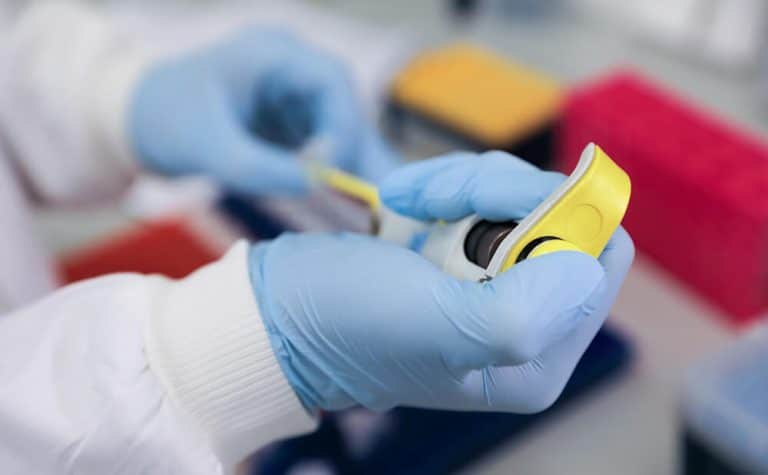
Other stories
We have lots of information to help you learn more about childhood cancer. From specific cancer types, to treatments and causes.

